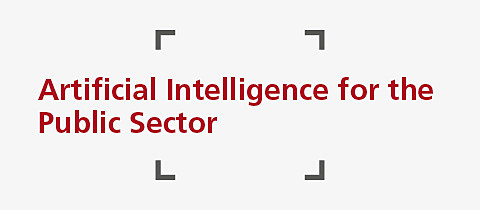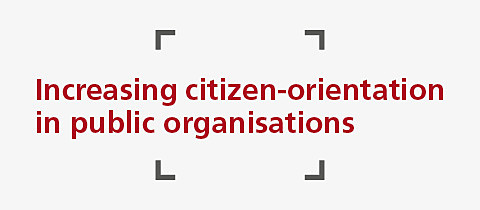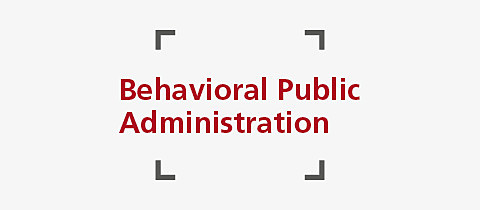Artificial intelligence (AI) is currently one of the most vividly discussed topics in innovation research and practice. One possible definition of AI is that it involves computer systems to perform tasks that would otherwise require human intelligence. In recent years, technological advances have enabled new applications of AI such as self-driving cars and intelligent chatbots, sparking hopes that it would soon also bring about improvements to the functioning of public organizations. Oftentimes, machine learning algorithms (supervised, unsupervised and reinforcement learning algorithms) are used to implement these applications. In this research focus, we study the possibilities, opportunities and risks of AI applications with a specific focus on public organizations.
AI adoption in public organizations (Oliver Neumann, Katharina Guirguis, Reto Steiner)
In many areas of the public sector, there are both high expectations and numerous concerns regarding the use of AI. However, to date, the number of functional AI applications in public organizations is still very limited and it remains unclear which mechanisms lead to successful AI adoption. To improve our understanding of these mechanisms, this project empirically investigates the different approaches that public organizations take to implement AI projects. Specifically, the project explores AI adoption in different Swiss public organizations, focusing on organizations that have already started working on at least one AI project. In qualitative interviews, various possible factors influencing the success of AI adoption are examined, such as organizational, environmental or technological factors. The findings of the study are supposed to both advance the scientific debate and help public organizations to better understand the success factors of implementing AI projects.
Choices are not the result of chance, but rather of a series of cognitive factors that intertwine, overlap, sometimes compete against each other, and lead to a specific decision-making. In an ever-changing environment, the options are vast and the time for reflection brief. Consequently, the best alternatives are not always considered. Behavioral economics then looks at the decision-making process from an angle combining both economics and psychology and seeks to detect behavioral trends in order to improve choices frequently made. More information.
Project Team: Prof. Oliver Neumann and Audrey Gonin
Public organizations increasingly co-produce public services with their users. The co-production of public services is generally understood as the involvement of citizens and other actors external to the public administration in the design, production, and provision of public services [1]. Co-production is often seen as a driver for: innovation creation to increase public value in the public sector [2], increased legitimacy, more efficiency and effectiveness of government, and more accountability [3].
We elaborate how different dimensions of co-production (Co-commissioning, Co-design, Co-delivery, and Co-assessment/evaluation) [4] can improve public services and what challenges co-production poses to public organizations. For this purpose, we will study co-production through different projects and angles, such as digital inequalities in citizen-sourcing platforms or the interplay between agile organizational practices and co-production.
Project Team: Prof. Oliver Neumann and Pascale-Catherine Kirklies
[1] Voorberg, W. H., Bekkers, V. J. J. M., & Tummers, L. G. (2015). A Systematic Review of Co-Creation and Co-Production: Embarking on the social innovation journey. Public Management Review, 17(9), 1333–1357. https://doi.org/10.1080/14719037.2014.930505
[2] Bovaird, T., & Loeffler, E. (2012). From Engagement to Co-production: The Contribution of Users and Communities to Outcomes and Public Value. VOLUNTAS: International Journal of Voluntary and Nonprofit Organizations, 23(4), 1119–1138. https://doi.org/10.1007/s11266-012-9309-6
[3] Verschuere, B., Brandsen, T., & Pestoff, V. (2012). Co-production: The State of the Art in Research and the Future Agenda. VOLUNTAS: International Journal of Voluntary and Nonprofit Organizations, 23(4), 1083–1101. https://doi.org/10.1007/s11266-012-9307-8
[4] Loeffler, E. (2021). Co-Production of Public Services and Outcomes. Palgrave Macmillan. https://doi.org/10.1007/978-3-030-55509-2





